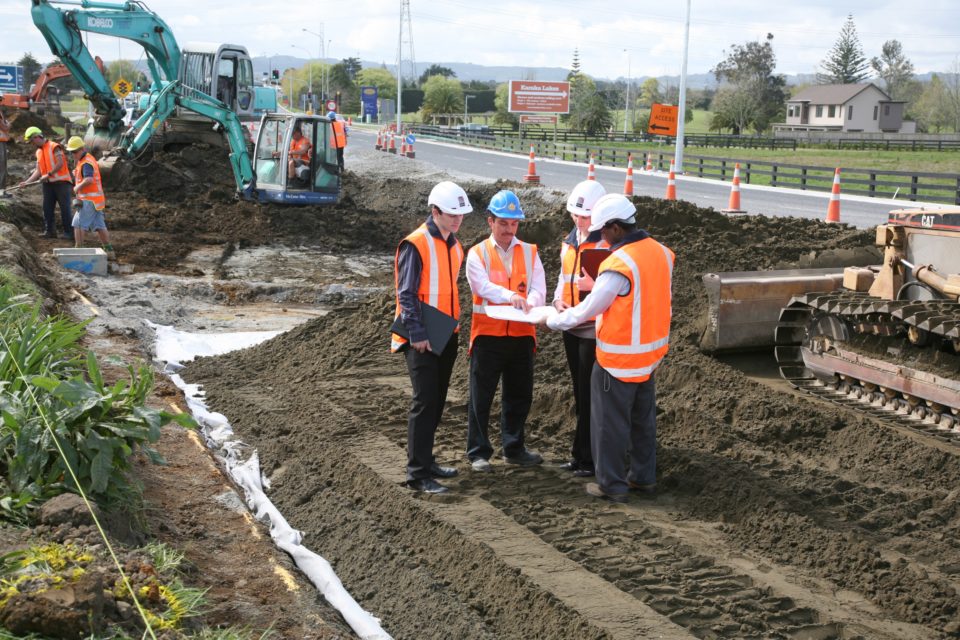By Peter Silcock, chief executive, Civil Contractors New Zealand.
The CCNZ is setting out up a Civil Workforce Forum which will complement its Civil Trades Programme.
The forum will be a platform for our industry to make its workforce needs clear and show career seekers and support agencies the entry points to the civil construction industry. It will complement the CCNZ Civil Trades Programme that encourages and supports trades training and our career promotion programme EPIC.
With the increased volume of infrastructure work in the water, transport, and energy sectors there is no doubt that we need more people working on our sites. With the adoption of new technologies throughout the industry we also need those people to be technology savvy, hardworking and ready to learn.
Initially, the goal of the forum will be to explore entry points and barriers to employing people through a stocktake and gaps analysis project that’s part-funded by the Ministry of Social Development. But, the plan is that the forum will provide us with an ongoing platform to support and promote the industries training and people development programmes.
The initial project will focus on how pre-employment and pre trades training is delivered rather than how people get qualified, and we hope it will also be complemented by work conducted by Connexis and the Tertiary Education Commission.
This project will inform the work of the proposed Construction and Infrastructure Workforce Development Council when it comes into being, and Te Pukenga – the organisation that will replace the country’s polytechnics.
Although unemployment here remains low, there is no doubt that the pandemic has significantly impacted our economy. A construction-led economic recovery and employment of people displaced from industries such as aviation, tourism and hospitality in construction is still very much the focus. But to do this, we need better define the skills we need and provide clearer pathways into our industry.
Onboarding people to our industry
If you ask just about any contractor what makes someone employable at entry level, they will say a good attitude, willingness to learn, and the ability to turn up to work on time…. and a driver’s licence helps too.
At the same time contractors often identify their biggest challenge as getting the right people with the skills they need.
So, how do we ensure people starting in the industry have the right base skills? Skills that will ensure they are safe on site on the first day and can quickly move to being productive.
There are numerous workforce intake programmes in place, but these programmes often operate for a limited time or only in one region. As a result the experience of what worked and what didn’t is often not accessible or retained by the wider industry and funders like government agencies.
Several programmes provide pastoral care, such as Mana in Mahi or The Southern Initiative. Many programmes are effective and well intentioned, but they tend to work with individual contractors rather than the industry.
Regional Skills Hubs are also being founded across the country, tasked with connecting people with training and employment. But, if we can’t tell these support agencies what it takes for someone to be employable and start work in our industry, it makes it very difficult for them to help. The same goes for working with schools and the Ministry of Education.
I think the answer to the challenges of onboarding people to our industry already exist, but they exist in isolation and at a smaller scale than they should. As a result, we spend a lot of time, energy and money reinventing how we take people on.
In the main – those who work to construct the country’s roads and water networks are educated not by polytecs or private training companies, but by experience and the employer.
This means the people in our industry are a product of the business culture they are trained in, which can be a good thing – it means the training is directly relevant to the work people do and has tangible value to the employer. But, it also makes it very hard for agencies that fund and provide training and support for career seekers to interact with us. Often these people do not understand the skills we need and want – or even at what stage career seekers are considered ’employable’.
Now is the time for us to resolve the longstanding lack of support for civil construction training delivery.
It’s really important that the needs of contractors of all sizes are met, so we will be reaching out to you in the next few months through the Civil Workforce Forum to check in on what you need from the people you employ in this great industry.


Parting words from Jeremy Sole- a final column